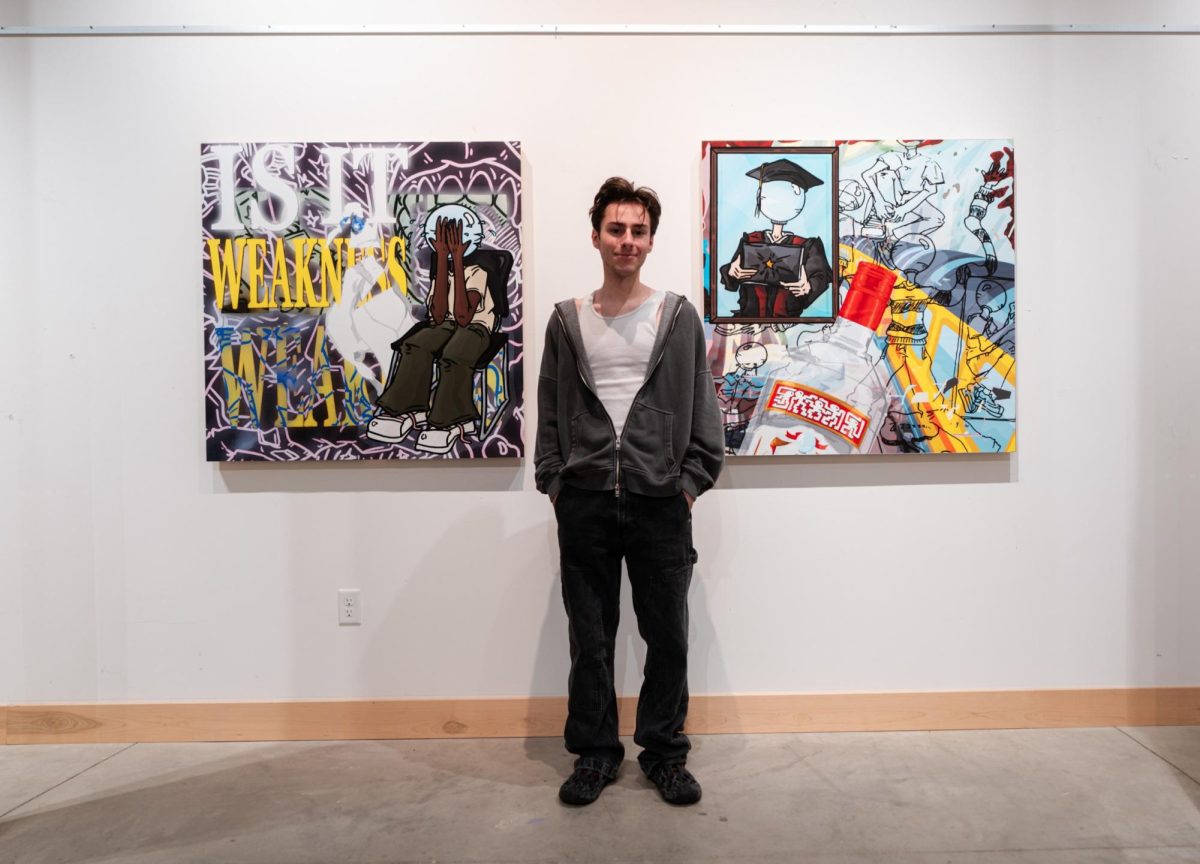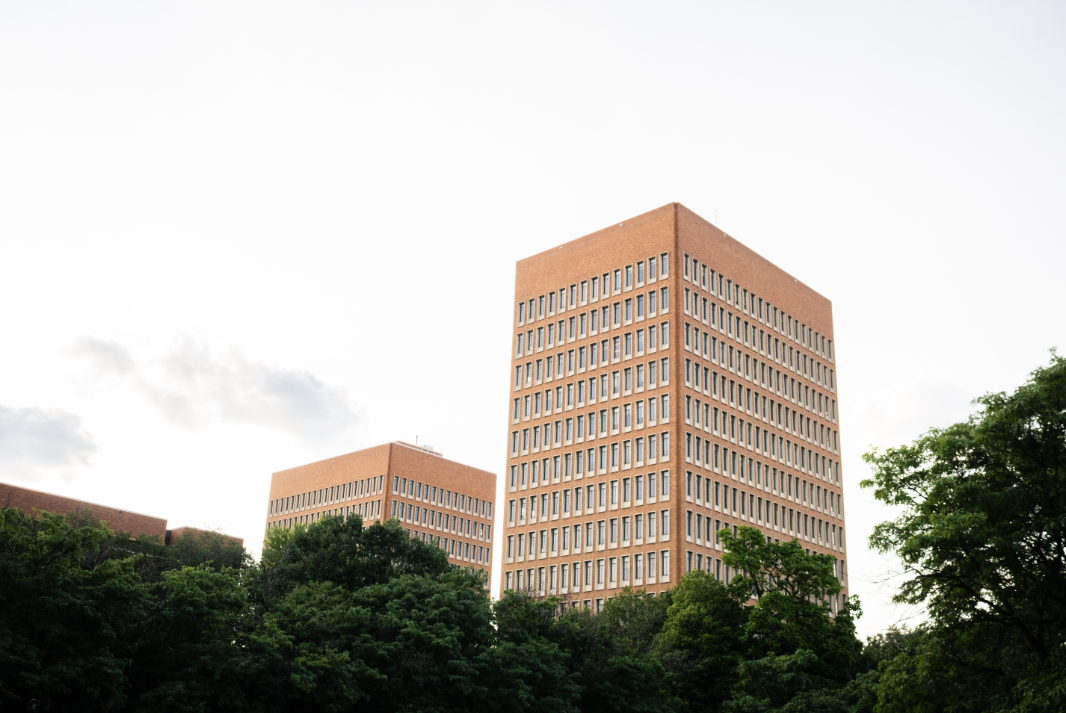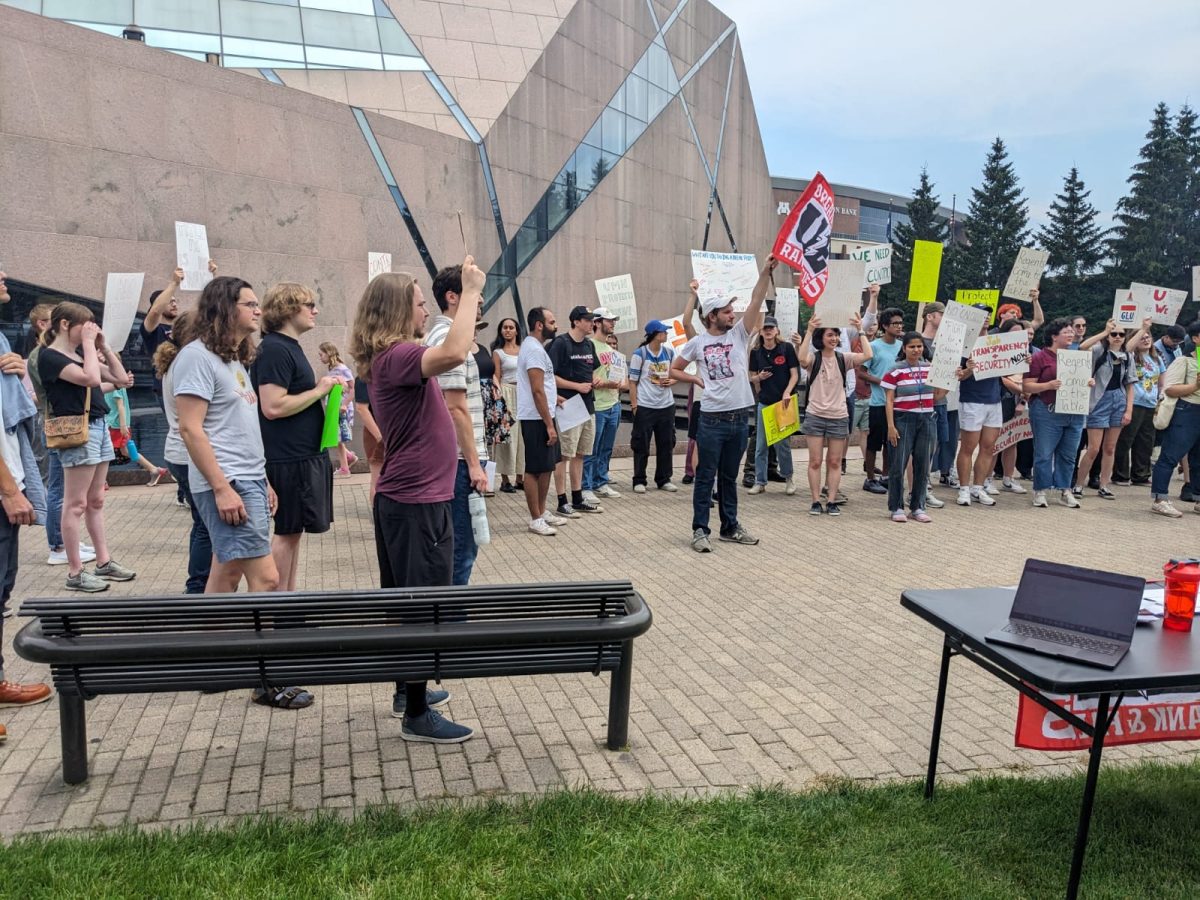The Regent Candidate Advisory Council (RCAC) closed applications for 2023 University of Minnesota Board of Regents appointments on Tuesday. State Sen. Greg Clausen (DFL-57) is heading the RCAC as the committee’s chair this year.
Greg Clausen announced his appointment to the RCAC on Oct. 24. Clausen’s appointment raised concerns among some community members over potential conflict of interest in regent selections because Clausen has received campaign funding from the Maroon and Gold Rising Political Action Committee (PAC).
While not affiliated with the University, Maroon and Gold Rising is an organization composed of alumni, former regents and legislators. The PAC claims to lobby in the interests and advancement of the University through making campaign contributions to legislators on both sides of the aisle who are involved in the regent selection process.
Concerns have begun to rise though nearly two years after the University Student Government (USG) wrote a letter to the board denouncing the PAC and its involvement in the regent selection process after sitting regents donated a total of $8,500 to Maroon and Gold Rising in 2020.
The Regent Selection Process
The Minnesota State Legislature elected regents rather than the University itself. Through a multi-month process, candidates are selected, screened and voted on by various committees before their names make it to the House floor. Although this process has been around for more than 40 years, it has not always been this way.
After its founding in 1851, the Minnesota territorial legislature elected the University’s regents. The power of elections was shifted to the governor in 1860, two years after Minnesota gained statehood. This process shifted again in 1928 back to the state Legislature after the University sued the state over fears of excess gubernatorial oversight.
This system lasted until 1988 when the Legislature created the RCAC after University alumni pushed to make the process less political and more transparent.
The regent selection process starts in the RCAC, which is made up of 24 people, including state representatives, senators and two students. The committee recruits applicants, screens their application materials and makes candidate recommendations to the regent nomination joint committee by Jan. 15.
Senators and House members of the higher education budget and policy divisions in both chambers make up the regent nomination joint committee. They then make their recommendations at a joint convention of the House and Senate, where all 201 members vote on a candidate to be elected to the board.
When choosing who to recommend, the RCAC follows set criteria. These include experience serving on a governing body, ability to give time to the board and a commitment to the University’s values. Additionally, they also “seek for a balance as far as what their experiences are,” Clausen said.
While some see this system as an improvement from what it used to be, others claim these extra steps make the process more political than before. Both the council and the committee make recommendations, however, legislators can still nominate people who didn’t go through the process on the floor before the vote.
“It’s a game of Chutes and Ladders,” former University regent Michael Hsu said. “You could end up not making it through RCAC, but then you can be re-nominated or you can add your name to be brought up in the higher ed committee.”
The regent selection process spans from mid fall to late March and can sometimes run up to the end of the legislative session.
“It’s a painful process to go through, in part because it ends up being so political,” Regent Janie Mayeron said. “I think it discourages good candidates from applying because they don’t want to go through that process”
Maroon and Gold Rising
Over the last two years, donors of Maroon and Gold Rising as well as recipients of their funding have been accused of creating conflicts of interest by influencing the Legislature to vote for specific candidates.
In 2020, a group of regents, including Board Chair Ken Powell, Regent Mayeron and former regents Richard Beeson and David McMillian, came under fire by the USG after they donated a total of $8,500 to the PAC.
While some view these contributions as a conflict of interest, others see it as a way to support University interests at the Legislature.
“When I gave money to Maroon and Gold Rising, it was my understanding that the whole purpose was to contribute to members in the Legislature who the PAC felt would have been good supporters of the University and its mission,” Mayeron said. “I personally don’t see that as a conflict of interest, and the fact that somebody calls it a conflict of interest doesn’t make it one.”
Powell did not respond to the Daily’s request for comment.
Maroon and Gold Rising claims to lobby on behalf of the University and its interests, but these interests are not well defined, according to University Student Representative to the Board of Regents Gabriel Richardson.
“We need to look at what these interests are before we make an assumption,” Richardson said. “They [Maroon and Gold Rising] haven’t articulated their interests and that’s where the problem lies. Does it mean the interests of students, staff, faculty?
First started in 2020, Maroon and Gold Rising finds legislators who are specifically involved in the regent selection process. In 2020, they gave $49,500 to politicians and political committees and $13,800 in 2021.
The legislators who received funding include Clausen, who received $1,000 in 2020 and $500 in 2021.
“I’ve never felt that because a certain person or group contributes to my campaign that I have an allegiance to them or I owe them something,” Clausen said. “I have an open door policy that anyone that wants to have a meeting with me, I make sure that we schedule a meeting so it’s not like I’m giving certain people preferences.”
Other recipients include Rep. Connie Bernardy (DFL-41A), who is the chair of the Higher Education and Finance Committee, and Sen. Thomas Bakk (I-3), who is on the Rules and Administration Committee, which appoints members to the regent nomination joint committee.
Bernardy and Bakk did not respond to the Daily’s requests for comment.
As a former regent who has been through regent elections, Hsu said he believes Maroon and Gold Rising’s involvement in the regent selection process creates conflicts of interest.
“For Clausen to become the chair of that and to be a person who clearly was related to Maroon and Gold through a donation in a previous year, I think he should not have accepted the chair,” Hsu said.
During the 2021 regent elections, Hsu lost his seat and claimed he was knocked out of the process due to targeting by Maroon and Gold Rising. Hsu was known for being one of the most outspoken members on the Board, raising significantly more questions about agenda materials than other regents in the majority.
“I don’t know all the reasons why they didn’t want me on the board anymore, but it’s probably because I couldn’t be controlled by other people,” Hsu said.
Hsu announced Tuesday he applied for the open at-large seat.
Although some actors are entrenched in the regent selection process, many students don’t even know how regents are elected, according to Richardson. Although a lot of the decision may seem out of students’ control, Richardson still encourages them to become involved in the process.
“A lot of students don’t even know who the regents are,” Richardson said. “Ultimately, they are voted in by those who we vote in. Getting students to vote can factor into the regent selection process.”




























ziemniaki08
Dec 10, 2022 at 4:12 pm
I think i read these somewhere but don’t know where.
D.636WB.COPt10041lb